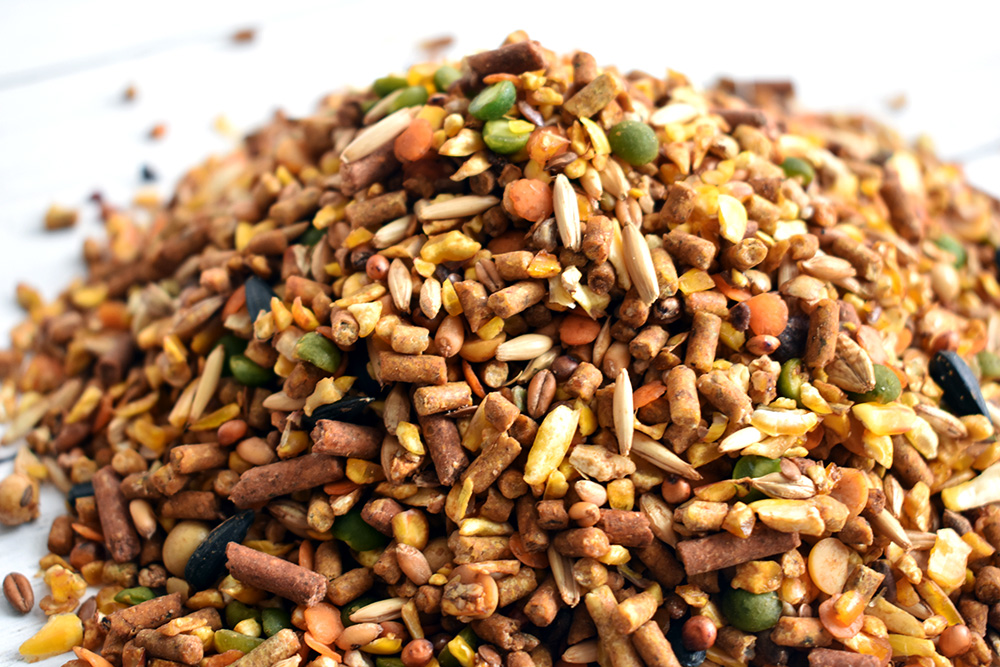If you are a poultry enthusiast, you understand the importance of providing your chickens with nutritious feed. Learning how to grind corn for chicken feed is a crucial skill that can significantly impact the health and productivity of your flock. This article will guide you through the process, offering practical advice and highlighting the benefits of properly ground corn.

Introduction to Corn Grinding for Chicken Feed
Corn is a staple ingredient in many chicken feed recipes because of its high carbohydrate content and essential nutrients. Properly grinding corn ensures that chickens can easily digest and absorb these nutrients.

Why It’s Essential to Grind Corn for Chicken Feed
Whole corn kernels are difficult for chickens to digest. Grinding the corn increases its surface area, allowing chickens to access the nutrients more efficiently. This can lead to healthier birds and better egg production.

Types of Grinders for Corn
Hand Crank Grinder
Hand crank grinders are affordable and do not require electricity. They are suitable for small-scale poultry farmers.
Electric Grinder
Electric grinders are efficient and can process large quantities of corn quickly. They are ideal for larger poultry operations.

Choosing the Right Grinder
When choosing a grinder, consider factors such as capacity, ease of use, and price. It’s also important to read reviews and perhaps even test a few models to find the best fit for your needs.
Step-by-Step Guide to Grinding Corn for Chicken Feed
1. Clean the Corn
Make sure the corn is free from debris and mold. Dirty or moldy corn can harm your chickens.
2. Set Up the Grinder
Ensure the grinder is clean and properly assembled. Follow the manufacturer’s instructions for setup.
3. Grind the Corn
Start the grinding process, adjusting the settings as needed to achieve the desired consistency. Fine ground corn is usually easier for chickens to digest.
4. Store the Ground Corn
Store the ground corn in a cool, dry place. Use airtight containers to prevent moisture and pests from contaminating the feed.
Benefits of Home-Grinding Corn for Chicken Feed
Grinding your own corn ensures freshness and quality. You also have control over the texture and can customize the feed to suit your chickens’ needs.
Potential Problems and Solutions
Grinding Too Fine
If the corn is ground too fine, it can become dusty and hard for chickens to consume. Adjust the grinder settings to achieve a coarser grind.
Grinding Too Coarse
Larger corn pieces can be difficult for chickens to digest. Ensure your grinder settings produce a fine enough grind for easy digestion.
Alternative Ingredients to Mix with Ground Corn
You can mix other grains and supplements with ground corn to create a balanced diet. Consider adding ingredients like soybeans, wheat, and nutritional supplements.
Cost Analysis: Grinding at Home vs. Buying Commercial Feed
Grinding your own feed can be cost-effective, especially if you purchase corn in bulk. Commercial feeds can be expensive and may contain additives you wish to avoid.
Environmental Impact of Grinding Corn for Chicken Feed
Home-grinding corn reduces the need for packaging and transportation, which can positively impact the environment.
DIY Chicken Feed Recipes
Create your own chicken feed recipes by mixing ground corn with other ingredients. Tailor the recipes to your chickens’ nutritional needs.
FAQs
How often should I grind corn for my chickens?
It’s best to grind corn in small batches to maintain freshness. Grind enough to last a few weeks at a time.
Is it safe to feed chickens only ground corn?
No, chickens need a balanced diet. Mix ground corn with other grains and supplements to ensure they get all necessary nutrients.
Can I use any type of corn for chicken feed?
It’s best to use field corn or dent corn. Avoid using sweet corn as it lacks the necessary nutrients for chickens.
Additional Resources
For more information on poultry care, visit Durvet’s Poultry Care Guide.
Recommended Articles
Explore related topics on our site:
As an Amazon Associate, I earn from qualifying purchases.









